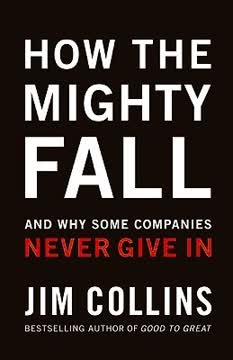Key Takeaways
1. Economic Growth Depends on Property Rights and Rule of Law
"People generally do not exert the effort to accumulate the capital necessary for economic growth unless they can own it."
Foundational Economic Principle. Property rights are the cornerstone of economic development. When individuals can confidently own, use, and transfer property without fear of arbitrary seizure, they are motivated to invest, improve, and create wealth. This principle extends beyond physical assets to intellectual property and financial resources.
Key Implications of Property Rights:
- Provide economic security
- Encourage long-term investment
- Create incentives for innovation
- Enable wealth accumulation
- Foster individual economic empowerment
Cultural Transformation. Transitioning from collective ownership to individual property rights requires deep cultural shifts. Societies must move beyond historical perspectives that view profit and individual ownership as morally suspect, recognizing that property rights are essential for economic progress and individual opportunity.
2. Trust and Reputation Are Essential for Market Capitalism
"Where trust is lost, a nation's ability to transact business is palpably undermined."
Economic Lubrication. Trust acts as a fundamental mechanism that enables complex economic interactions. Without widespread trust, transaction costs increase, credit becomes more expensive, and economic efficiency dramatically decreases. Reputation becomes a critical economic asset that can be more valuable than immediate financial gains.
Trust Mechanisms:
- Voluntary transactions
- Reputation-based interactions
- Self-regulation
- Cultural norms of integrity
- Informal accountability systems
Market Ecosystem. In a sophisticated economy, most transactions rely on mutual trust rather than legal enforcement. From pharmacists filling prescriptions to international financial contracts, trust allows sophisticated economic systems to function with minimal friction and maximum efficiency.
3. Competition and Open Markets Drive Prosperity
"Competition is the primary driver of economic growth and standards of living in the United States."
Dynamic Economic Engine. Free market competition creates continuous pressure for innovation, efficiency, and improvement. Companies that cannot adapt are naturally displaced by more innovative competitors, a process economist Joseph Schumpeter called "creative destruction."
Competitive Advantages:
- Drives technological innovation
- Reduces prices
- Improves product quality
- Encourages entrepreneurship
- Allocates resources efficiently
Global Integration. Open trade and competitive markets have been instrumental in reducing global poverty, creating opportunities for developing nations to participate in the world economy and improve living standards.
4. Institutional Quality Determines Economic Success
"State-enforced property rights are the key growth-enhancing institution."
Institutional Framework. The quality of a nation's institutions—legal systems, governance structures, and regulatory environments—profoundly impacts economic development. Strong, transparent institutions create predictability and reduce transaction costs.
Critical Institutional Elements:
- Rule of law
- Protection of individual rights
- Transparent governance
- Efficient regulatory systems
- Fair judicial mechanisms
Performance Variation. Countries with similar resources can have dramatically different economic outcomes based on the quality of their institutions. Effective institutions enable societies to convert potential economic advantages into real prosperity.
5. Natural Resources Can Be an Economic Curse
"No wonder tiny São Tomé and Príncipe... had a mixed reaction about exploiting [oil] reservoirs."
Resource Paradox. Abundant natural resources can actually hinder economic development, a phenomenon known as "Dutch disease." Resource-rich countries often experience currency distortions, reduced economic diversity, and decreased productivity.
Resource Challenges:
- Currency value distortions
- Reduced economic diversification
- Decreased productivity
- Political instability
- Reduced entrepreneurial motivation
Sustainable Development. Successfully managing natural resource wealth requires sophisticated economic planning, investment in human capital, and strategies to prevent over-reliance on raw material exports.
6. Flexibility and Resilience Are Key to Economic Survival
"A rarely discussed, but important, macroeconomic determinant of economic success is the extent of an economy's flexibility and hence its resilience to shocks."
Adaptive Capacity. Economic systems must continuously evolve and adjust to changing conditions. Rigid structures are vulnerable to disruption, while flexible economies can rapidly reallocate resources and respond to challenges.
Resilience Strategies:
- Diverse economic sectors
- Adaptable workforce
- Responsive regulatory environments
- Continuous innovation
- Open information systems
Shock Absorption. The ability to withstand and recover from economic disruptions—like the 9/11 attacks or financial crises—determines long-term economic sustainability.
7. Globalization Has Reduced Worldwide Poverty
"Over the past thirty-five years... global per capita income has risen steadily."
Transformative Global Trend. Globalization and market capitalism have been powerful forces in reducing global poverty, creating unprecedented opportunities for economic advancement in developing countries.
Poverty Reduction Metrics:
- Significant decline in extreme poverty
- Increased school enrollment
- Improved infant mortality rates
- Higher literacy rates
- Expanded economic opportunities
Uneven Progress. While globalization has produced remarkable results, its benefits have not been uniformly distributed, with some regions experiencing more significant improvements than others.
8. Political Partisanship Undermines Economic Governance
"Governance has become dangerously dysfunctional."
Political Fragmentation. Increasing political polarization reduces the government's ability to implement effective, long-term economic strategies. Ideological divisions impede pragmatic policy-making and compromise.
Governance Challenges:
- Reduced bipartisan cooperation
- Short-term political thinking
- Inefficient resource allocation
- Increased policy volatility
- Diminished institutional trust
Systemic Risk. Political tribalism threatens economic stability by prioritizing partisan victories over national economic interests.
9. Central Banking Requires Nuanced Policy Approaches
"We based our policy response on a range of possible scenarios."
Complex Economic Management. Modern central banking demands sophisticated, forward-looking strategies that balance multiple economic variables and potential outcomes.
Policy Complexity:
- Balancing inflation and growth
- Managing global economic interactions
- Understanding technological disruptions
- Anticipating market psychology
- Maintaining economic stability
Adaptive Expertise. Effective central banking requires continuous learning, flexibility, and the ability to challenge existing economic models.
10. Technological Innovation Transforms Economic Landscapes
"Technology has released much of the extra inventory and the ranks of backup workers to productive and profitable uses."
Innovative Disruption. Technological advances continuously reshape economic structures, creating new opportunities while rendering existing systems obsolete.
Technology's Economic Impact:
- Increased productivity
- Enhanced communication
- Reduced transaction costs
- New business models
- Global economic integration
Adaptive Challenge. Societies must develop mechanisms to manage technological transitions, supporting workers and industries through periods of significant economic transformation.
Last updated:
FAQ
What's The Age of Turbulence about?
- Personal and Professional Journey: The book is a memoir by Alan Greenspan, detailing his life from childhood to his role as Chairman of the Federal Reserve. It covers his experiences in economics and politics.
- Economic Insights: Greenspan provides an analysis of economic theories, market capitalism, and central planning failures. He reflects on the U.S. economy's resilience and challenges.
- Historical Context: Set against major historical events like the fall of the Berlin Wall and 9/11, the book illustrates how these influenced economic policies and public perception.
Why should I read The Age of Turbulence?
- Unique Perspective: Greenspan offers a firsthand account of the U.S. economy and Federal Reserve, providing insights not commonly available.
- Understanding Economic Policy: The book delves into economic decision-making complexities and the politics-economics interplay, offering a deeper understanding of policy formulation.
- Lessons from History: Greenspan reflects on past economic crises, encouraging critical thinking about economic systems and their societal impact.
What are the key takeaways of The Age of Turbulence?
- Resilience of the Economy: Greenspan emphasizes the U.S. economy's ability to recover from crises, attributing this to flexible labor markets and deregulated financial systems.
- Importance of Trust: Trust is essential in market economies; without it, economic transactions become risky, undermining market effectiveness.
- Role of Government: He discusses the balance between government intervention and free-market principles, advocating for limited government involvement to foster growth.
What are the best quotes from The Age of Turbulence and what do they mean?
- "The economy is best described as moving forward, but in the teeth of a fifty-mile-an-hour headwind.": This illustrates economic challenges during downturns, emphasizing growth despite adverse conditions.
- "You can’t ask small-business owners to voluntarily forgo price increases.": Critiques unrealistic expectations on businesses during downturns, highlighting business operation realities.
- "The long run is rapidly becoming the short run.": Warns of the urgency in addressing fiscal issues before they escalate, highlighting the consequences of policy procrastination.
How does The Age of Turbulence address the concept of globalization?
- Global Economic Integration: Greenspan discusses how globalization has made economies more interconnected and interdependent, enhancing flexibility and resilience.
- Challenges of Globalization: Addresses issues like income inequality and regulatory needs, emphasizing careful management for equitable growth.
- Future of Globalization: Speculates on globalization's evolution, encouraging adaptation to changes while maintaining stability.
What role did Alan Greenspan play in the Federal Reserve?
- Chairman of the Fed: Greenspan served from 1987 to 2006, overseeing monetary policy during significant events like the dot-com bubble and 2008 financial crisis.
- Crisis Management: Managed economic crises, emphasizing liquidity maintenance post-9/11, and observed economic impacts before policy changes.
- Influence on Economic Policy: Focused on controlling inflation and promoting growth, believing in the U.S. economy's resilience to shocks.
How does The Age of Turbulence explain the 2008 financial crisis?
- Crisis Origins: Reflects on factors like excessive risk-taking and regulatory oversight failures contributing to the crisis.
- Regulatory Failures: Discusses risky lending practices and complex financial instruments, emphasizing better regulation to prevent future crises.
- Lessons Learned: Highlights the importance of understanding market dynamics and balanced regulation for stability and innovation.
How does The Age of Turbulence address income inequality?
- Growing Concern: Acknowledges increasing income inequality since the 1980s, attributing it to globalization and technology favoring skilled workers.
- Cultural Resistance: Discusses how cultural attitudes influence economic policies addressing inequality, with welfare states having different approaches.
- Policy Recommendations: Advocates for education and training programs to help individuals adapt, emphasizing human capital investment for equity.
What are the main economic theories discussed in The Age of Turbulence?
- Market Capitalism: Greenspan champions market capitalism for wealth generation and living standards improvement, emphasizing competition and innovation.
- Central Planning Failures: Critiques centrally planned economies' inefficiencies, arguing they stifle creativity and dynamism.
- Monetary Policy: Discusses monetary policy's role in stability, focusing on inflation control and balancing growth with price stability.
How does The Age of Turbulence relate to current economic issues?
- Relevance to Modern Economics: Insights into economic resilience and sound monetary policy remain pertinent, offering lessons for current challenges.
- Globalization and Trade: Explores globalization's impact, encouraging consideration of trade policies and international cooperation.
- Income Inequality: Ongoing debate about inequality and its societal effects is central, with recommendations for education and training resonating with current discussions.
How does The Age of Turbulence address corporate governance?
- Single Voice in Leadership: Effective governance requires unified direction, avoiding dissonance in corporate goals.
- Role of Shareholders: Emphasizes shareholder control to limit management's self-serving actions, ensuring accountability.
- Challenges of Transition: Acknowledges unavoidable dissonance during transitions, warning against pursuing conflicting interests.
What are the future economic predictions made in The Age of Turbulence?
- Long-Term Growth Rates: Projects continued U.S. economic growth, barring unexpected crises.
- Inflationary Pressures: Warns of potential inflationary pressures, indicating the need for vigilant monetary policy.
- Global Economic Dynamics: Discusses shifting global market dynamics, reflecting the evolution of economic governance in a globalized world.
Review Summary
The Age of Turbulence receives mixed reviews, with ratings ranging from 1 to 5 stars. Many readers appreciate Greenspan's insights into economic history and his personal experiences, finding the book informative and well-written. Critics argue that Greenspan fails to address his role in recent financial crises and presents a biased view of economic policy. Some find the book too lengthy and technical for general readers. Overall, reviewers value Greenspan's unique perspective but disagree on the book's ultimate merit and accuracy.
Similar Books






Download PDF
Download EPUB
.epub digital book format is ideal for reading ebooks on phones, tablets, and e-readers.






